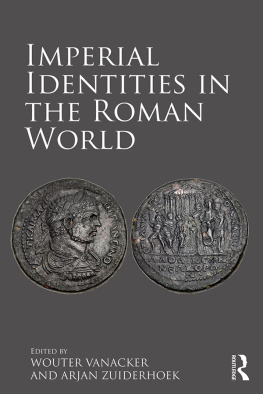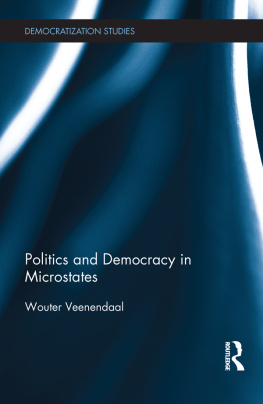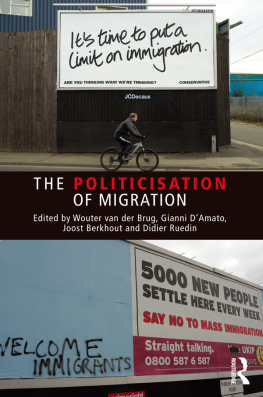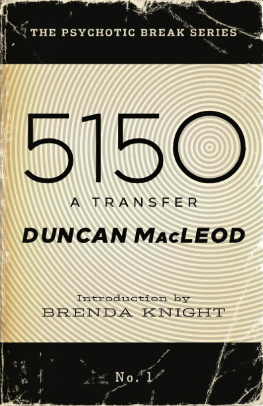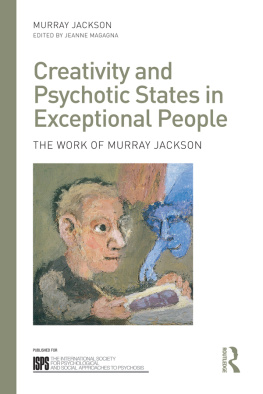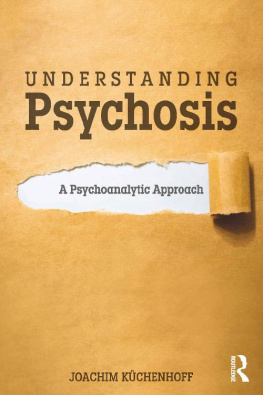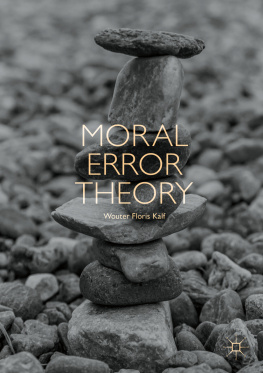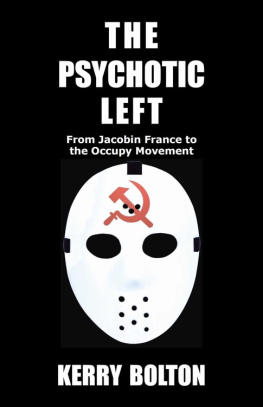Wouter Kusters - The Experience of Psychotic Thinking
Here you can read online Wouter Kusters - The Experience of Psychotic Thinking full text of the book (entire story) in english for free. Download pdf and epub, get meaning, cover and reviews about this ebook. publisher: MIT Press, genre: Religion. Description of the work, (preface) as well as reviews are available. Best literature library LitArk.com created for fans of good reading and offers a wide selection of genres:
Romance novel
Science fiction
Adventure
Detective
Science
History
Home and family
Prose
Art
Politics
Computer
Non-fiction
Religion
Business
Children
Humor
Choose a favorite category and find really read worthwhile books. Enjoy immersion in the world of imagination, feel the emotions of the characters or learn something new for yourself, make an fascinating discovery.

- Book:The Experience of Psychotic Thinking
- Author:
- Publisher:MIT Press
- Genre:
- Rating:3 / 5
- Favourites:Add to favourites
- Your mark:
- 60
- 1
- 2
- 3
- 4
- 5
The Experience of Psychotic Thinking: summary, description and annotation
We offer to read an annotation, description, summary or preface (depends on what the author of the book "The Experience of Psychotic Thinking" wrote himself). If you haven't found the necessary information about the book — write in the comments, we will try to find it.
The Experience of Psychotic Thinking — read online for free the complete book (whole text) full work
Below is the text of the book, divided by pages. System saving the place of the last page read, allows you to conveniently read the book "The Experience of Psychotic Thinking" online for free, without having to search again every time where you left off. Put a bookmark, and you can go to the page where you finished reading at any time.
Font size:
Interval:
Bookmark:
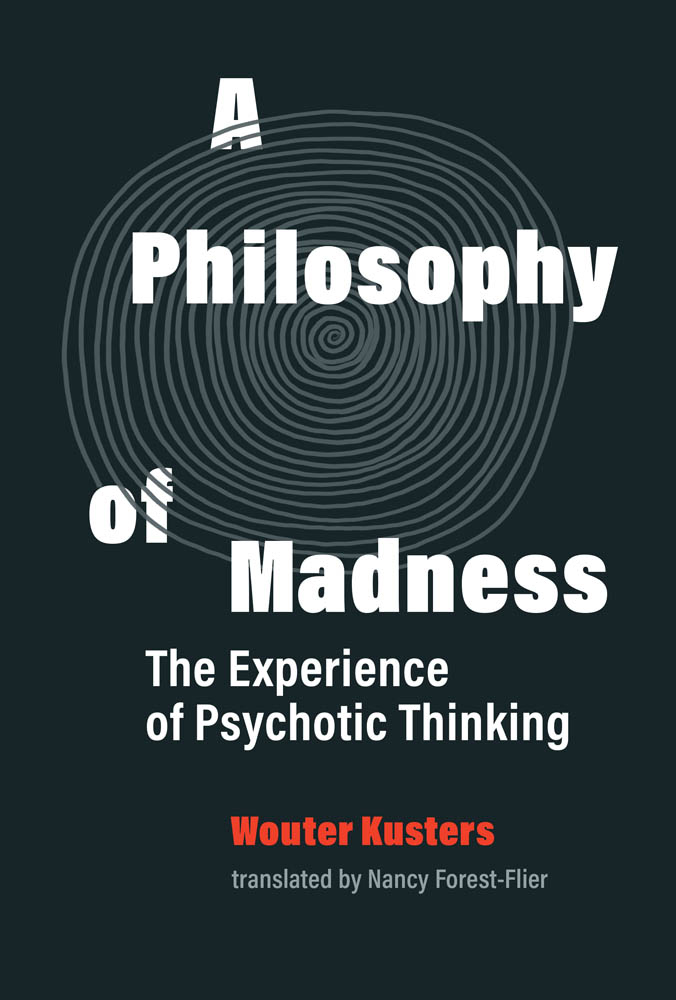
A Philosophy of Madness
The Experience of Psychotic Thinking
Wouter Kusters
Translated by Nancy Forest-Flier
The MIT Press
Cambridge, Massachusetts
London, England
First published in The Netherlands under the title Filosofie van de waanzin: Fundamentele en grensoverschrijdende inzichten
2014 by Lemniscaat, Rotterdam, The Netherlands
Text copyright 2014 by Wouter Kusters
This edition 2020 Massachusetts Institute of Technology
No part of this book may be reproduced, transmitted, broadcast or stored in an information retrieval system in any form or by any means graphic, electronic, or mechanical, including photocopying, taping, and recording, without prior written permission from the publisher.
This publication has been made possible with financial support from the Dutch Foundation for Literature.

Library of Congress Cataloging-in-Publication Data
Names: Kusters, Christiaan Wouter, 1966 author. | Forest-Flier, Nancy, translator.
Title: A philosophy of madness : the experience of psychotic thinking / Wouter Kusters ; translated by Nancy Forest-Flier.
Other titles: Filosofie van de waanzin. English Description: Cambridge : The MIT Press, 2020. | Translations of: Filosophie van de waanzin: Fundamentele en grensoverischrijdende inzichten, 2014. | Includes bibliographical references and index.
Identifiers: LCCN 2019057342 | ISBN 9780262044288 (hardcover)
Subjects: LCSH: Mental illnessPhilosophy. | PsychosesPhilosophy.
Classification: LCC RC437.5 .K8713 2020 | DDC 616.89001dc23
LC record available at https://lccn.loc.gov/2019057342
d_r0

Everything is lost in translation, but its also duplicated, enlivened, and improved by translation.
Madness as I discuss it in this book is the imperfect translation of the Dutch waanzin , which could also be described as insanity, folly, or craziness ( Wahnsinn in German, folie in French). With the Dutch waanzin , I focus on the range of experiences of all those deemed, in medical jargon, to be psychotic, as I was oncetwice, in fact. Yes, indeed, I was diagnosed as psychotic in 1987 and in 2007, and before, during, and after those periods, I also worked as an academic linguist and philosopher, interested in language, subjectivity, and the conditions and extremes of what is called experience.
From 2010 until 2014 I worked on this book, which has as its first thematic line a philosophical examination of the experience of being psychotic. I have slightly lifted the veil that hangs over the enigma of psychosis, and I follow this with a close examination of what happens in the various phases of the psychotic experience. In doing so I follow and elaborate on the less well-known phenomenological psychiatric literature of the earlier twentieth century, such as that of Eugne Minkowski and Wolfgang Blankenburg, and their modern proponents, such as Louis Sass and Giovanni Stanghellini. What happens to the experience of time and space in psychosis? What happens to reality? How are other people perceived, and what happens to thought? I examine such questions from a perspective of philosophical wonder and openness, fed and inspired by my own experiences as well as those of many others, written down in reports, autobiographies, and narratives, such as those of Daniel Schreber, Antonin Artaud, John Custance, and Harald Kaas.
It was the highlighting, analyzing, expressing, and evoking of the experience of psychosisor madness, the less medically flavored term that I preferwhich made this book such a success in the Netherlands. From its publication in 2014 to the moment of this writing, I have received a steady stream of e-mails and other responses from a host of different readers. I was invited to numerous mental health congresses and meetings, and was asked to give lectures, presentations, and courses to inform and teach psychiatrists, psychologists, and all kinds of other professionals and nonprofessionals who work and live with psychotic people. But didnt they already know, before reading my book, what the experience of psychosis is like? Apparently not. In mental health education today, so much of the psychotic experience is hidden behind medical jargon, behind supposedly objective labels and descriptions, and behind risk management, fear, and attitudes that are theoretical, distanced, and semiprofessional. Consequently, the voices of the psychotic, with their full meanings, intentions, desires, and intensities, are seldom heard.
By following and enlivening the experience of psychosis in such detail through the written word, the book also touched a nerve among other kinds of readersnamely, all those who at one time or another have been labeled psychotic, schizophrenic, bipolar, or any number of related terms. Most of the people from this group who contacted me were not asking for clarification or discussion but were expressing their support and recognition. So many have gone through the same storms, the same depths and heights, the same dark confusions and bright insights, but have never had the chance to allow madness to reenter their consciousness and to be put into words, either for others or for themselves; many of these people were grateful to have finally found a text that acknowledged what it is like. Indeed, some readers had had comparable episodes decades ago, and reading this text enabled them to explore their mad journey for the first time in their lives.
In a way, this is also a dangerous book. My examination of the philosophy of madness reached its apex in July 2007, when I finished a major paper on the philosophy of the experience of time in psychosis. In combination with other stress factors, the steady flow of philosophical deliberation on the subject of psychosis swept me away that summer and plunged me right into the heart of the object itself: a full-blown acute psychosis. It is this possible maddening effect of certain words and thoughts that constitutes the second thematic line of this book. I demonstrate how my own philosophical attitude led to psychotic praxis, and I argue that this is a more common occurrence; that is, a certain kind of consistent philosophizing may very well result in confusion, paradoxes, unworldy insights, and circular frozenness that is reminiscent of madnesswhich in fact is what happened to quite a few philosophers who are far from unimportant, such as Thomas Aquinas, Friedrich Nietzsche, and Georg Cantor. I give examples of this, from myself and others, but I also demonstrate it by letting the controlled language of philosophical observation and reflection slowly but surely shift toward its objectthat is, madnessthe further one reads into the book.
There was yet another kind of reader who was less interested in psychiatry or mental health issues as such. This reader was primarily interested in the book for its perspective on philosophy as a dangerous, possibly maddening activity in which the stakes are, and should be, set high. In a way, then, not only does the book alleviate psychosis and emancipate the psychotic person from medical classifications, but it also emancipates the philosopher from the clinical academic context of narrow textbook study and frees him or her to engage in real-life praxis, philosophy in vivo, which is accessible to everyonenot least of all the madman. In fact, as a third thematic line in this book, I argue that psychosisin spite of all its sufferings and digressionsis best understood as the desire for infinity and absolute freedom, which it shares with so many philosophies.
Font size:
Interval:
Bookmark:
Similar books «The Experience of Psychotic Thinking»
Look at similar books to The Experience of Psychotic Thinking. We have selected literature similar in name and meaning in the hope of providing readers with more options to find new, interesting, not yet read works.
Discussion, reviews of the book The Experience of Psychotic Thinking and just readers' own opinions. Leave your comments, write what you think about the work, its meaning or the main characters. Specify what exactly you liked and what you didn't like, and why you think so.


